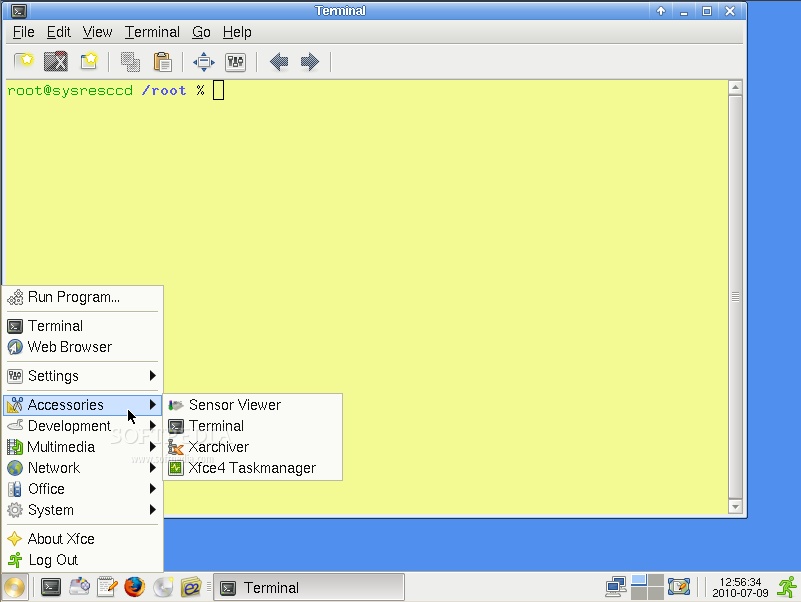
SystemRescueCd has been updated bringing newer Linux kernels and a newer GParted. With SystemRescueCd 1.5.8, both kernel lines offered have been updated to Linux kernel 2.6.32.16 and Linux kernels 2.6.34.1 respectively. A newer version of GParted, the graphical partitioning tool, has been included which fixes a couple of critical bugs from the previous release.
Highlights of SystemRescueCd 1.5.8: · Standard Linux kernels 2.6.32.16 - 32-bit and 64-bit versions; · Alternative Linux kernels 2.6.34.1 - 32-bit and 64-bit versions; · GParted 0.6.1 - fixes two critical bugs. Those are all the updates in this somewhat early release, but the critical nature of the bugs in one of the most important packages in the distribution may have contributed to the rush. SystemRescueCd is generally updated once every couple of weeks, though that’s not necessarily set in stone. SystemRescueCd 1.5.8 also comes with the first update to the newer kernel line, Linux kernel 2.6.34, which debuted in SystemRescueCd 1.5.6. Since then, the standard kernel line used is 2.6.32 while 2.6.33 has been dumped. The last release, SystemRescueCd 1.5.7 introduced a minimal Samba server and a new file recovery tool for EXT3 filesystems. About SystemRescueCd SystemRescueCd is a Linux Live CD operating system that offers an easy and quick way to repair systems and recover data after serious crashes. With utilities ranging from disk diagnostic mechanisms (such as TestDisk and sfdisk) and partition managers, to basic, day-to-day applications (like text editors, Midnight Commander, etc.), SystemRescueCd also provides support for all important filesystems, including the Btrfs and EXT4 ones. SystemRescueCd is a solution that anyone who is experiencing data loss or other system-related problems should consider using. SystemRescueCd 1.5.8 is available for download here. | |

No response to “SystemRescueCd 1.5.8 Fixes a problem in GParted”
Leave a Reply